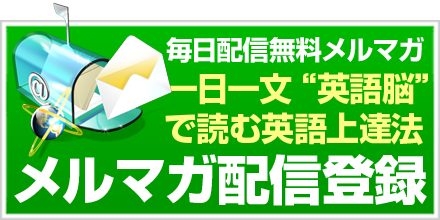英語脳メルマガ 第04764号 countably infinite is the key. の意味は?
今日も英語脳で英語を読む練習をしていきましょう! 一日一文“英語脳”で読む英語上達法 2022年4月23日(土)号 VOL.4764 本日の例文 TED-Edより「The Infinite Hotel Paradox(無限ホテルのパラドックス)」です。 Countably infinite is the key. Now, the infinite bus of infinite passengers perplexes the night manager at firs...









最近のコメント